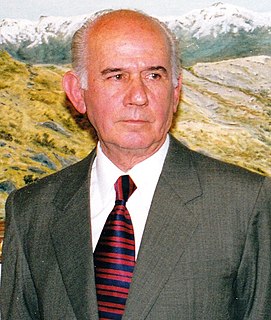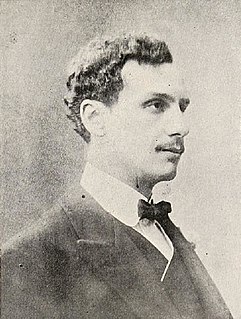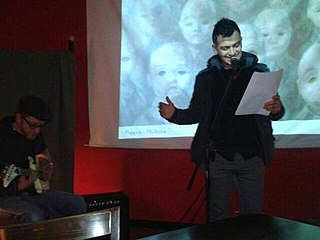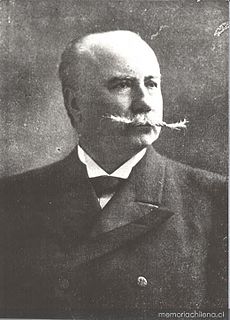 W
WManuel Silva Acevedo is a Chilean poet. He won the National Prize for Literature in 2016.
 W
WFernando Alegría was a Chilean poet, writer, literary critic and scholar.
 W
WEduardo Anguita Cuéllar was a Chilean poet, who was awarded the Chilean National Prize for Literature in 1988.
 W
WSergio Badilla Castillo is a Chilean poet and the founder of poetic transrealism in contemporary poetry. He is considered the Latin American poet with the broadest Nordic influence, from the Finnish poets, Edith Södergran, Elmer Diktonius, Paavo Haavikko, Pentti Saarikoski and the Swedes Gunnar Ekelöf, Tomas Tranströmer and Lars Gustafsson.
 W
WAndrés de Jesús María y José Bello López was a Venezuelan humanist, diplomat, poet, legislator, philosopher, educator and philologist, whose political and literary works constitute an important part of Spanish American culture. Bello is featured on the old 2,000 Venezuelan bolívar and the 20,000 Chilean peso notes.
 W
WGuillermo Blest Gana was a Chilean writer, usually considered one of his country's leading exponents of Romantic literature.
 W
WRoberto Bolaño Ávalos was a Chilean novelist, short-story writer, poet and essayist. In 1999, Bolaño won the Rómulo Gallegos Prize for his novel Los detectives salvajes, and in 2008 he was posthumously awarded the National Book Critics Circle Award for Fiction for his novel 2666, which was described by board member Marcela Valdes as a "work so rich and dazzling that it will surely draw readers and scholars for ages". The New York Times described him as "the most significant Latin American literary voice of his generation".
 W
WEugenio Cruz Vargas was a notable Chilean poet and painter. His art was developed under the naturalistic landscape and abstraction, and his collection of poems under the concepts of surrealism and culminate in the literary creationism.)
 W
WEnrique Gómez Correa was a Chilean poet, lawyer and diplomat.
 W
WJosé Domingo Gómez Rojas was a Chilean poet and anarchist. He is also known for being the only victim of Don Ladislao's War.
 W
WJuan Guzmán Cruchaga was a Chilean poet and diplomat. He won the Chilean National Prize for Literature in 1962. Guzman Cruchaga was of Basque descent. He was the son of Juan José Guzmán Guzmán and Amelia Cruchaga Aspillaga. He attended the colegio de San Ignacio from 1905, finishing his humanities subjects in 1912. In 1913 he enrolled into the Faculty of Law of Universidad de Chile, quitting during his third year there.
 W
WÓscar Arturo Hahn Garcés is a Chilean writer and poet, and a member of the literary generation of the 1960s. Hahn has won multiple distinguished awards, notably the National Prize for Literature (Chile) and the Pablo Neruda Ibero-American Poetry Award.
 W
WAugusto Goemine Thomson, who adopted the pseudonym Augusto d’Halmar was a Chilean writer who earned the National Prize for Literature in 1942.
 W
WVicente García-Huidobro Fernández was a Chilean poet born to an aristocratic family. He promoted the avant-garde literary movement in Chile and was the creator and greatest exponent of the literary movement called Creacionismo ("Creationism").
 W
WSergio Infante is a Chilean poet, essayist, university professor and writer, who resides in Sweden.
 W
WJorge Inostrosa Cuevas was a Chilean novelist, biographer, journalist, and screenwriter for radio, theater, and television. By his own account, "he lived to write and for what he gained from writing." Upon his death, he had more than 30 titles under his belt, as well as lyrics, poems, and a significant number of scripts for film, radio, and television.
 W
WVíctor Lidio Jara Martínez was a Chilean teacher, theater director, poet, singer-songwriter and communist political activist tortured and killed during the dictatorship of Augusto Pinochet. He developed Chilean theater by directing a broad array of works, ranging from locally produced plays to world classics, as well as the experimental work of playwrights such as Ann Jellicoe. He also played a pivotal role among neo-folkloric musicians who established the Nueva Canción Chilena movement. This led to an uprising of new sounds in popular music during the administration of President Salvador Allende.
 W
WPablo Jofré is a Chilean poet currently living and working in Berlin, Germany. Jofré was awarded the Lagar Prize by the Chilean National Contest of Literature Gabriela Mistral for the poetry collection Abecedario in 2009. He also won first prize at the Sant Andreu de la Barca Competition for his poem "La Danza de la Existencia (Extranjería)" in 2010.
 W
WJerónimo Lagos Lisboa (1883-1958) was a Chilean poet.
 W
WPedro Lastra is a Chilean poet and essayist.
 W
WEusebio Lillo Robles was a poet, journalist and politician. He is the author of the lyrics of the Chilean National Anthem.
 W
WPablo Mackenna Dörr, is a Chilean television presenter, writer and poet. He was a host of the Chilean version of television show CQC.
 W
WPatricio Manns is a Chilean composer, author, poet, novelist, essayist, play writer and journalist.
 W
WRicardo Eliécer Neftalí Reyes Basoalto, better known by his pen name and, later, legal name Pablo Neruda, was a Chilean poet-diplomat and politician who won the Nobel Prize for Literature in 1971. Neruda became known as a poet when he was 13 years old, and wrote in a variety of styles, including surrealist poems, historical epics, overtly political manifestos, a prose autobiography, and passionate love poems such as the ones in his collection Twenty Love Poems and a Song of Despair (1924).
 W
WPedro de Oña (1570–1643) is considered the first known poet born in Chile, and is best remembered for his verse epic poem Primera parte de Arauco domado. Born in Angol, he was the son of a military captain, Gregorio de Oña, who had perished during the conquest of Chile by Spain. Pedro de Oña grew up amid this ongoing conflict; he was born in what was then a small military post, in a territory largely controlled by Chile's indigenous peoples.
 W
WNicanor Segundo Parra Sandoval was a Chilean poet and physicist. He is considered one of the most influential poets in the Spanish language of the 20th century, often compared with Pablo Neruda. Parra described himself as an "anti-poet," due to his distaste for standard poetic pomp and function; after recitations he would exclaim "Me retracto de todo lo dicho".
 W
WFrancisco Ismael Segundo Parraguez Cabezas, or simply Ismael Parraguez was a Chilean musician, Normal teacher, poet, and novelist. He was known for being the creator of the Orfeón Chileno in 1914, during the centennial of the Battle of Rancagua and the children's poem Los pollitos dicen, which he published on his 1907 book Poesías Infantiles. Parraguez was also known by the pseudonym of Misael Guerra.
 W
WCarlos Pezoa Véliz was a poet, educator and journalist from Chile. His literary work remained largely unpublished until his death at the age of 28. He was posthumously recognized as a major figure in the history of Chilean poetry.
 W
WLuis Mauricio Redolés Bustos is a Chilean poet, singer-songwriter and musician. His literary and musical work is characterised by irony, satire, humour and use of colloquialisms.
 W
WGonzalo Rojas Pizarro was a Chilean poet. His work is part of the continuing Latin American avant-garde literary tradition of the twentieth century. In 2003 he was awarded the Cervantes Prize.
 W
WCarlos de Rokha (1920–1962) was a Chilean poet and writer.
 W
WMauricio Rosenmann Taub, a native of Santiago, is a Chilean composer, writer and poet.
 W
WDavid Rosenmann-Taub is a Chilean poet, musician, and artist. His precocious talent in both literature and music was recognized and encouraged by his father, a polyglot, and his mother, a virtuoso pianist. She began teaching him the instrument when he was two; by nine, he himself was giving piano lessons. He later studied composition, counterpoint, and fugue with the celebrated composer Pedro Humberto Allende. He began writing poetry at a very early age; his first published work, a long poem titled El Adolescente, was written at age fourteen and appeared four years later in a literary magazine.
 W
WAntonio Róbinson Saldías González, also known as Don Antonio de Petrel is a Chilean researcher and writer. He studied philosophy at the University of Concepción.
 W
WSalvador Sanfuentes was a Chilean lawyer, politician and poet. He served as Minister of Justice and Public Worship twice, and was elected as MP for the Association of Vallenar.
 W
WPedro Sienna was a Chilean playwright, poet, journalist, art critic and theatre and movie actor who is also remembered as one of his country's pioneering directors in the early years of silent film.
 W
WVíctor Domingo Silva Endeiza was a Chilean poet, journalist, playwright and writer.
 W
WJorge Octavio Teillier Sandoval was a Chilean poet.
 W
WJuvencio Valle, also known by the pseudonym Gilberto Concha Riffo, was a noted Chilean poet. He is a recipient of the Premio Nacional de Literatura de Chile, a National Prize awarded to poets of high achievement.
 W
WDaniel de la Vega was a Chilean journalist, poet, playwright, chronicler, and novelist.
 W
WCarlos Walker Martínez was a Chilean lawyer, politician and poet.
 W
WRaúl Zurita Canessa is a Chilean poet. He won the Chilean National Prize for Literature in 2000.